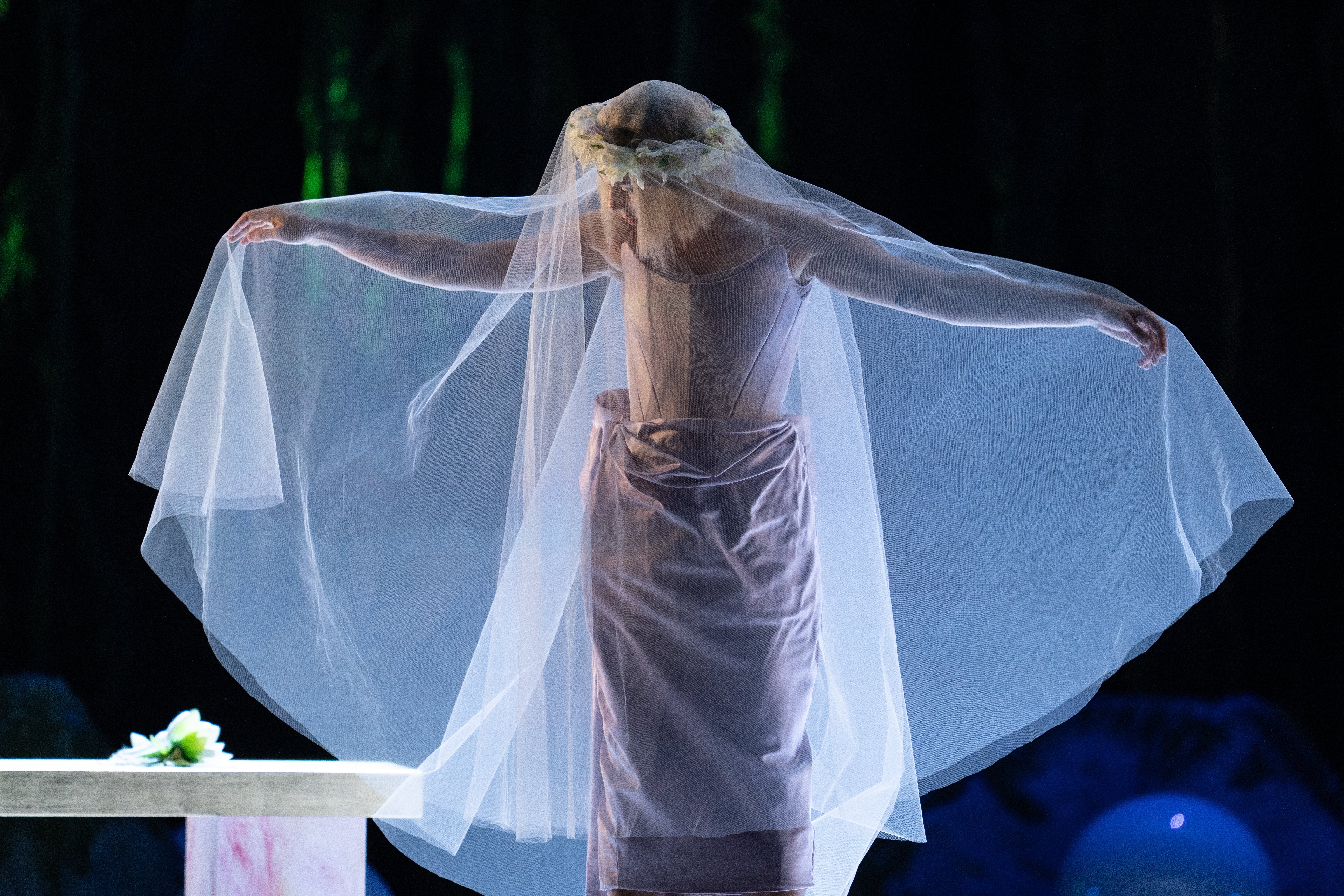Rusalka review: The message fights with the music in this eco-conscious staging
Natalie Abrahami and Ann Yee’s production of Dvorak’s fairytale opera is well cast but weighed down by its politics

Reading a director’s rationale before watching their take on a classic can blunt the freshness of one’s responses. But there are times when some preliminary swotting is essential, and so it is with the Rusalka of co-directors Natalie Abrahami and Ann Yee, whose Royal Opera House production engages provocatively with Dvorak’s plot.
That plot is a variant on a standard fairytale trope. A water spirit falls in love with a prince, and, with the help of a witch, becomes human in order to marry him. But the pair can only stay together so long as she stays dumb, and he stays faithful.
But this marriage of earth and water founders in contact with human society. Distraught by the prince’s infidelity, Rusalka breaks her side of the bargain by explaining that the prince will die if he kisses her: penitent, he begs to be allowed that kiss, and dies when she grants it. Released from the fatal pact, Rusalka disappears back into the depths whence she came.
What these directors impose on the plot is a full-blown Extinction Rebellion worldview. For them, the story is not about a conflict between nature and humanity, but about humanity’s need to stop exploiting and polluting nature, and instead to live in harmony with it.
So the set before the fatal pact is to be a verdant idyll, and after it an arid waste. Off-cuts from the costumes of an old ROH Carmen production will be recycled as “ecologically sound” elements of the fictional water kingdom. The chorus will look as if they are covered in oil, but that will be an illusion. The prince’s voluntary self-immolation will be presented as “an unexpected redemption”, symbolising humanity’s finding a way back to its ecologically prelapsarian state. The directors rightly regard this opera as Dvorak’s ode to nature.
After the busy virtue-signalling in the programme, it’s a relief to dive into the seductive waters of Dvorak’s music, which under Semyon Bychkov’s direction provides three hours of delicately inflected melodiousness. There may be just one knockout aria in this opera – Rusalka’s hymn to the moon – but here there’s beauty in every bar.
The first thing that greets the eye is Rusalka’s lake, in Chloe Lamford’s design a vast and dim-lit watery Eden in which diaphanous figures gently swim and turn somersaults; it’s fringed with what look like hanging creepers (those Carmen cast-offs) and dotted with rocks.
After meeting Rusalka’s father Vodnik (baritone Aleksei Isaev), we meet Rusalka herself, bemoaning the fact that she can’t join the humans who she’s heard have more fun than water spirits. And while Vodnik has a quintessentially Russian sound, Rusalka’s is so clean and pure that even her pianissimi cut through with clarity: Lithuanian soprano Asmik Grigorian has a voice in a thousand. Then – first heard in the distance – comes the voice of the prince, British tenor David Butt Philip, a sweetly expressive foil to the protagonist.
There are other voices of note: Sarah Connolly as the witch Jezibaba, and Emma Bell as the Duchess, a thunderous rival to Rusalka for the prince’s affections; fine cameo roles are delivered by Hongni Wu as a cross-dressed servant boy, and by Ross Ramgobin as the forester. This is a strongly cast show.
But there’s a faultline running through it all. Very little of the promised eco-correctness resonates in what we see and hear, and when it does – as with the clumsy visual symbolism and the fussy choreography of the second act – it fights with the down-home simplicity of the story, and with the emotional directness of the music.
If this work sags in the middle thanks to crude characterisation, it recovers strongly in the closing act, to which Bychkov brings a Wagnerian sweep and grandeur. Grigorian’s final blessing on the dead prince has piercing pathos.
Royal Opera House, until 7 March
Subscribe to Independent Premium to bookmark this article
Want to bookmark your favourite articles and stories to read or reference later? Start your Independent Premium subscription today.

Join our commenting forum
Join thought-provoking conversations, follow other Independent readers and see their replies